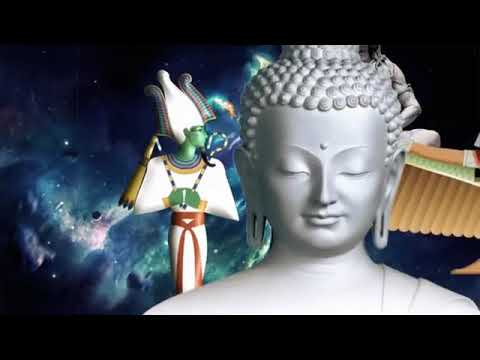Your thoughts on this?
I don’t know if it is true or accurate but it was cool to watch.
Hmm… I have no opinion, good or bad, on Madame B, but the whole notion of dark practices is subjective. Abrahamic religions view most earlier shamanic and pagan religions as “demonic” while adopting a whole lot from them, including several myths associated with the Jesus hagiography. On the other hand, several Shamanic traditions perceive the Abrahamic god Yahweh to be an egregore similar to a hungry ghost.
So, the notion of “dark” vs “light” practices is largely subjective and should not really be a criterion for rejecting or accepting something.
Same answer - the notion of good vs evil is also subjective and changes across cultures, time periods, changing sensibilities/moralities, and timelines. In the time/space continuum, there is nothing that can be considered absolutely “good” or “evil” for the most part.
First of all, Sapien Medicine (which is a group, not a person), does not preach anything. Some of these tools needed, because people believe in them, and subjective experiences cannot be rejected as untrue, though they may not be universally true in an absolute sense. Your conclusions are very simplistic.
By your logic, demons are “dark”, angels are “light”, occult is “bad” etc., which are hardly objective truths! What really is “dark”? Darker than what? Lighter than what? If only the Universe was so simple that everything can be boxed into two categories!
Are you going to get everything you want by “not fucking around”? Are you getting what you want “by fucking around”? Try, but I doubt you will get everything you want in either case.
No energy is negative or positive in a true sense. How one responds to a certain form of energy and interaction with it can be used to perceive whether it can be termed negative at that point in time.
Nietzche deals with this dichotomy. Basically he says that there are two main kind of morals, master morality and slave morality, which he identifies with Rome (or the Greeks) and Judea (or the Christians). For Master morality, good is the powerful, beautiful, glorious that conquers and rules over everything, bad is that which is weak, ugly, without hunger of glory. Slave morality represents the upheaval of the slaves, whom driven by “beautiful hate” invented a new set of values, the Masters were now those who were bad (or better said, “evil”): Sadistic destructors that had no reservations on using their own strength to prevail over the weak. And now the weak but respectful of other people, those armed with compassion were those that in the slave morality are the “good”.
The good/bad binary is a product of Greek and Roman thinking, it characterizes morality by celebrating power and excellence. The good/evil binary is a product of Christian morality that is characterized by the priestly caste and resentment. A lot of our sense of Good vs Evil are just handed down moralities. The simple difference between good and bad, and good and evil, is the question of where the assessment begins. For the master morality, assessment begins with oneself as being good. For the slave morality, assessment begins with others (specifically, those in power) as being evil, and the assessment of oneself comes secondary, as being in opposition to the evil.
Nietzsche is proposing the idea that we should carve our own sense of morals based in what we think is good and bad relative to us, or what is being a free spirit, rather than adopting the good/evil moral dichotomy presented to us.
Nope. If you know what to do and how to do it. I have evoked Azazel a few times and have faced no issues.
Nope. I think a lot of your ideas are coming from TV shows where angels and demons are fighting with each other? Not really based in any occult experience.
Also, what do you mean by “ask”? Like a Christian prayer? Likely nothing will happen in either case, good or bad. Or something may happen if intention is very strong and it actually reaches either entity. If you mean an evocation, if you do it right, no harm form either of them.
Abrahamic religions have co-opted entities and named them Angels and Demons and termed some bad and some others good, and this dichotomy is very “frog in the well” narrow.
One of the challenges in arguing for a Yom Kippur setting in the Apocalypse of Abraham lies in the fact that the accounts of Abraham’s sacrificial practices lack any explicit reference to the two goats of biblical and rabbinic traditions. These emblematic sacrificial animals played a distinctive role in the Yom Kippur rite, wherein one goat was sacrificed to God and the other was released into the wilderness for Azazel.[1]
Yet in the Apocalypse of Abraham, a writing which exhibits a great deal of influence from the Enochic tradition, allusions to the Yom Kippur ritual seem to be affected also by Enochic re-interpretation of the scapegoat imagery and especially the enhanced symbolism of its chief antagonist, the scapegoat Azazel, envisioned now not as a sacrificial animal but as a demoted celestial being.
Absolutely! We always need more folks like you who question things and not accept what was told to us.
Wow
You are a really blessed, Mao.
That’s such a blessing ![]()
No idea how I came across this thread let alone your comment but wow
Thank you
(I really like him. I’ve had an uncanny amount of NDEs and I’ve always felt Azrael was the reason why I’d get to stay)
Edit: wait I read the wrong name lmao. I thought I read Azrael; not Azazel lol.
I don’t want to pry (much) but I’m fascinated by NDEs. Can you tell us more about your experience?
Makes you realize how much of a game this all is;
It’s nothing but a dream

